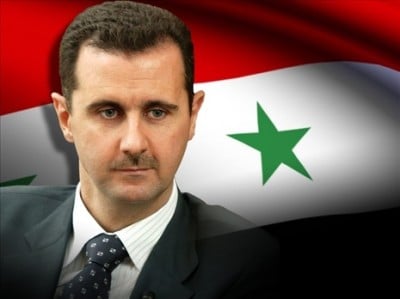Syria: By Evacuating and Pardoning Terrorists, Is Bashar Al-Assad “Being Too Nice”?

Contrary to Western fake news, Assad’s approach towards terrorists is deeply humane, some would say overly humane. Here is what we know and what must be answered.
Images of green bus convoys leaving Aleppo have provoked mixed reactions across the world. The coaches are filled with the surrendered terrorists who had occupied parts of East Aleppo prior to its liberation by the Syrian Arab Army.
See video below
Far from the fake massacres reported in the Western mainstream media, President Assad and his Russian partners are handling the situation in an utterly humane fashion, perhaps too humane. Assad’s rationale is that in order for Syria to once again be a peaceful and united country, as it was prior to 2011 when Western provocations triggered the current crisis, there needn’t be any Nuremberg style trials for the terrorists who continue to plague the country.
Assad has offered amnesty to any Syrians participating in terrorist activities in return for their pledge to lay down arms and permanently return to civilian life or join the fight against terrorism. He is also happy for the larger bulk of foreign fighters to peacefully leave the country, with many suggesting that Turkey, knowing that her plans for regime change in Damascus have failed, will cooperate in this.
It is a safe assumption that many of the terrorists formerly operating in Aleppo will flee to Turkey, where they will no longer be Syria’s problem. Others may flee into ISIS controlled regions of northern Iraq and others yet may seek safe passage further abroad, to the terrorist paradise that is the failed state of Libya. But the danger for Syrians are the terrorists who stay in Syria.
The buses from Aleppo are heading for Idlib. There is a high probability that many terrorists from Aleppo will refuse to disarm and simply join the battle that other terrorist groups are currently waging in Idlib. This strikes one as a consequence of short-term thinking on the part of the Syrian government.
In a recent interview, Assad has stated that because of the finite resources of the Syrian Arab Army, one must understand occupied regions of the country as a set of descending priorities.
According to the Syrian President, Aleppo was the priority for obvious reasons. Its size, its location within Syria, its historical importance and its importance as a large urban centre for the region, all meant that Aleppo’s freedom was essential to secure first and foremost.
Assad’s second priority are regions on the outskirts of Damascus which continue to be occupied by terrorists. It is only after this that regions around Idlib, Palmyra and ultimately Raqqa will be dealt with.
All of this is totally logical, except for the idea that terrorist fighters should live to fight another day. The move is clearly one born of humanitarian concerns, but the question which necessarily follows is, why should anyone show mercy to terrorists who showed no mercy to their victims, and, furthermore, why should they simply be transferred to another region of Syria to do in Idlib or beyond, what they did to Aleppo?
These are questions which Syria and her allies will ultimately have to address, either in a diplomatic forum or perhaps directly on the battle field as part of Assad’s long term solution to gradually eliminate all terrorism from Syria. With Obama on his last legs and a seemingly cooperate Donald Trump on his way to the White House, the idea of meeting Obama’s America half-way in terms of sheltering Al-Nura/Al-Qaeda is becoming a non-issue.
The matter as British Foreign Secretary Boris Johnson of all people said, is now in the hands of Syria, Russia and their allies. Terrorism cannot be tolerated in any form. This must be the long term and lasting message.

